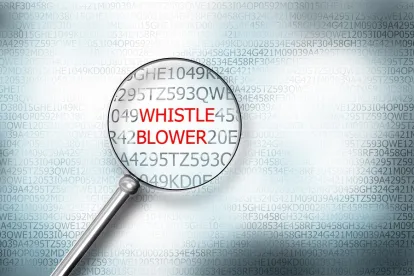On November 9, 2021, the National Highway Traffic Safety Administration (“NHTSA” or “the Agency”) awarded $24 million to whistleblower Kim Gwang-ho, a Hyundai engineer who provided information about safety violations involving engines seizing and catching fire in vehicles manufactured by Hyundai and its subsidiary Kia Motors. Mr. Kim is the first recipient of a whistleblower award under the Motor Vehicle Safety Whistleblower Act.
Motor Vehicle Safety Whistleblower Act
The Motor Vehicle Safety Whistleblower Act (“the Act”), codified at 49 U.S.C. § 30172, created the NHTSA’s whistleblower reward program. Under the Act, employees or contractors of motor-vehicle manufacturers, parts suppliers, or dealers, may receive between 10% and 30% of any monetary sanction over $1 million recovered by the government in an action based on an individual’s report of any motor vehicle defects, noncompliance with, or violations of, safety laws to the Agency.
Enacted in 2015, the Act was introduced by Senator John Thune, with bipartisan support, in response to high-profile motor vehicle recalls necessitated by serious defects. At the time, Takada had issued a recall over airbags that shot metal debris, and GM had issued a recall over ignition switching, which caused engines to shut down while the vehicle was in motion and thereby prevented the airbags from deploying. GM’s engine defect resulted in over 100 deaths and many lawsuits.
The Act was also a response to record high civil penalties brought against non-compliant motor vehicle companies. In 2014 alone, the NHTSA had issued over $126 million in civil penalties to non-compliant automakers, an amount more than the total collected by the Agency in its forty-three-year history. In short, the motor vehicle safety whistleblower program was intended to provide another mechanism for oversight within the auto industry.
Like other federal whistleblower programs, the Act incentivizes whistleblowers to report problems that would otherwise be hidden from regulators. For example, under the Securities and Exchange Commission’s whistleblower program, tips provided by whistleblowers have resulted in total monetary sanctions exceeding $4 billion. Similarly, over $1 billion in sanctions have been recovered by the Commodity Futures Trading Commission because of whistleblower tips. Finally, in fiscal year 2020 alone, the Department of Justice recovered $1.6 billion in settlements and judgments arising from whistleblower lawsuits brought under the False Claims Act. Whistleblowers have proven to be an effective resource for these federal agencies, and the recent reward to Mr. Kim illustrates how a whistleblower can be a valuable resource to the Agency.
Background on the Hyundai Whistleblower
Mr. Kim is an engineer who worked at Hyundai in South Korea for over 25 years. In 2015, Hyundai transferred Mr. Kim to the Quality Strategy team, a division responsible for decisions on recalls. Mr. Kim was tasked with investigating a design flaw in vehicles equipped with the signature Theta II GDI engine, which tended to stall and occasionally caught fire. The Quality Strategy report Mr. Kim and his team prepared identified multiple design flaws, including failure to improve engine components to accommodate power and performance upgrades. The team proposed various solutions, including design changes which Hyundai was receptive to and implemented, but the automakers refused the recommendation of a full recall claiming it didn’t view the issue as safety-related although the vehicles stalled at high speeds.
That same year, Hyundai announced a U.S. recall of 470,000 Sonata sedans equipped with the defective Theta II GDI engine. In conversations with U.S. regulators, Hyundai claimed the engine failure was due to a manufacturing defect, and was limited to one product line. But Hyundai minimized the extent of the problem. The Quality Strategy team’s report already had confirmed that the issue was widespread and impacted more than just the South Korean market and one product line. In response to the blatant cover-up, Mr. Kim reported his concerns to the NHTSA in 2016.
Through Mr. Kim’s cooperation with regulators at the conclusion of their four-year investigation, Hyundai and Kia were fined a combined $81 million in penalties and were forced to invest an additional $56 million into safety. If the auto giants fail to comply, they face an additional $73 million in related penalties.
Retaliation Against the Whistleblower
Hyundai fired Mr. Kim just weeks after he blew the whistle to the NHTSA. The company also filed a criminal complaint against him with Korean authorities, another potential act of retaliation. The Act protects whistleblowers against retaliation and prohibits employers from terminating an employee for reporting wrongdoing. The Occupational Health and Safety Administration (OSHA), part of the Department of Labor, investigates these complaints of retaliation. It is not clear whether the statute applies extraterritorially, and that issue has not come before the Administrative Review Board (In analyzing other whistleblower statutes, such as the Sarbanes-Oxley Act, however, the Board has determined that the statute does not apply to individuals working outside the U.S.). Fortunately, Mr. Kim had country-specific remedies available. The Korean Anti-Corruption and Civil Rights Commission intervened and ordered Mr. Kim’s reinstatement after determining that Hyundai had wrongfully terminated him for whistleblowing. The matter settled with Mr. Kim receiving a lump-sum early retirement payment, and the criminal complaint Hyundai filed against him was dismissed.
Conclusion
Mr. Kim’s case shows that the NHTSA whistleblower program is needed to regulate an industry that impacts us all. Though the NHTSA still has not promulgated rules implementing the Act six years after its enactment, the Agency recently created a website so that whistleblowers can more easily report their safety concerns. However, prospective whistleblowers should be aware that although the reward program is available to individuals located anywhere, the Act may not offer anti-retaliation protection to whistleblowers who work or reside outside the United States. Whistleblowers should consult with attorneys with expertise in this area to best understand their protections.



 />i
/>i

